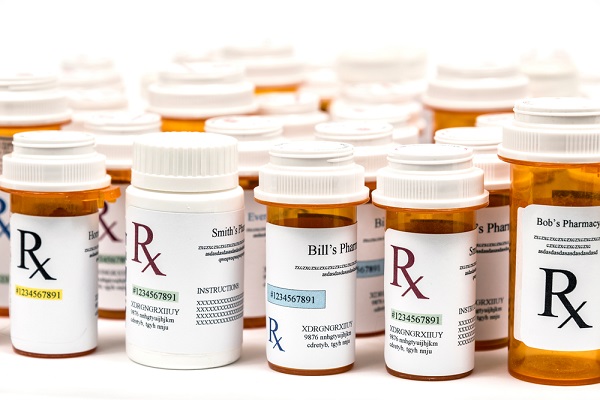 Blue Shield of California aims to produce 5 to 10 low-cost generic drugs in its initial effort, and the BCBSA/Civica group hopes that the first will be available by early 2022. (Photo: Shutterstock)
Blue Shield of California aims to produce 5 to 10 low-cost generic drugs in its initial effort, and the BCBSA/Civica group hopes that the first will be available by early 2022. (Photo: Shutterstock)
It may sound counter-intuitive, but a group of insurers is partnering with the "public asset" Civica Rx to bring down the cost of prescription drugs by producing generic versions at lower prices.
The New York Times reports that the insurers—the Blue Cross Blue Shield Association and 18 of its member organizations—have pledged $55 million in a partnership agreement with nonprofit Civica Rx "to create cheaper versions of expensive generic drugs for which there is little competition."
Related: Civica Rx's plan to reform pharma: Collaborate, not compete
Blue Shield of California, one of the 18, is joining the effort to produce 5 to 10 low-cost generic drugs in its initial effort, and the BCBSA/Civica group hopes that the first will be available by early 2022.
"We plan to introduce competitive alternatives to the marketplace to ensure we have affordable drugs available to our members," Paul Markovich, president and CEO of Blue Shield of California, said in a statement. "This is not happening naturally now. The only way to do it is to create a strong, competitive alternative, which is what we've done with the Civica Rx partnership. Anytime a drug is off patent, it's an opportunity for us to create an alternative and ensure that consumers are getting high-quality drugs that are also affordable. This is a first step for us, and there is more to come."
As drug prices continue to rise—a 5.8 percent increase is expected this year, after 2018 saw increases ranging from 10 to 50 to 100 percent—Civica Rx was formed, says the report, by Dan Liljenquist, chairman of Civica's board. In the NYT report, Liljenquist is cited saying that he was "motivated to help create the nonprofit after reading about struggles by patients to afford old, off-patent drugs like those sold by Mr. Shkreli and Valeant Pharmaceuticals International, a company with a similar business model."
Shkreli and Valeant made headlines for buying up off-patent medications and then raising the prices, often till they were priced out of reach of the patients who needed them.
"This will not solve all the problems of the world," Liljenquist told the NYT, "but we do know that 90 percent of prescriptions are generic, and there are certain parts of the generic markets that are not functioning like competitive markets should. And we intend to compete in those markets."
Civica, described as "a public asset whose mission is to ensure that essential generic medications are accessible and affordable," is already selling drugs used in hospitals to health systems around the country.
The latest move was met with praise from those in the health industry. "We appreciate this and other efforts to make prescription drugs more affordable by disrupting the market and increasing competition," said Steve Wojcik, vice president of public policy at the Business Group on Health (Formerly known as the National Business Group on Health). "Recent experience with huge price hikes overnight for generics that have been on the market for a long time, created tremendous challenges for patients with access and affordability. This initiative also draws attention to the fact that current pricing and supply chain models for prescription drugs, brand and generic, are broken and unsustainable."
This isn't the only drastic effort to bring down drug prices. Gov. Gavin Newsom of California has proposed a similar arrangement, in which the state would contract with outside manufacturers to produce generic drugs under the state's own label, and a similar proposal has come from Senator Elizabeth Warren, D-MA.
Under the new proposal, Civica would create a subsidiary that would either make its own drugs or contract with existing manufacturers. It has said that it hopes others, such as pharmacies, employers or other insurers, would join the effort.
Read more:
© 2025 ALM Global, LLC, All Rights Reserved. Request academic re-use from www.copyright.com. All other uses, submit a request to [email protected]. For more information visit Asset & Logo Licensing.







